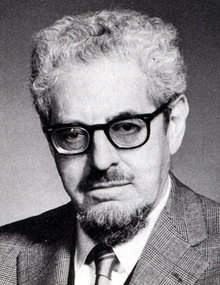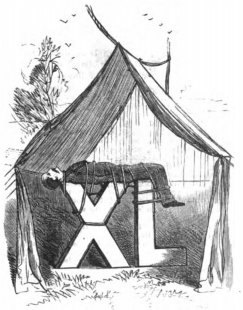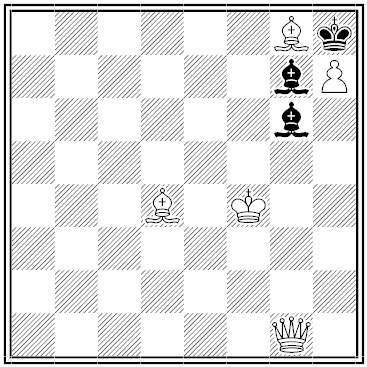“A man of genius has been seldom ruined but by himself.” — Samuel Johnson
Author: Greg Ross
Out on Top

During an appearance on The Dick Cavett Show in 1971, publisher and organic gardening advocate J.I. Rodale boasted, “I’m in such good health that I fell down a long flight of stairs yesterday and I laughed all the way.” When Cavett’s next guest, New York Post columnist Pete Hamill, joined them on the couch, Rodale made a snoring sound. Hamill told Cavett, “This looks bad.”
“The audience laughed at that. I didn’t, because I knew Rodale was dead,” Cavett wrote later in the New York Times. “To this day, I don’t know how I knew. I thought, ‘Good God, I’m in charge here. What do I do?’ Next thing I knew I was holding his wrist, thinking, I don’t know anything about what a wrist is supposed to feel like.”
Rodale had died of a heart attack. The episode was never aired.
“Illustrated Rebus”

From The Youth’s Companion, Sept. 25, 1879:
Why is this man likely to succeed in life?
Why do we know he has reached middle life?
How does the picture indicate his occupation?
Opposites Attract
In 1967 Dmitri Borgmann made his way from UGLY to BEAUTIFUL by means of dictionary definitions:
UGLY — OFFENSIVE
OFFENSIVE — INSULTING
INSULTING — INSOLENT
INSOLENT — PROUD
PROUD — LORDLY
LORDLY — STATELY
STATELY — GRAND
GRAND — GORGEOUS
GORGEOUS — BEAUTIFUL
Kipling called words “the most powerful drug used by mankind.”
Jetan

“If scientific theories are correct it is more of an honor to lose at chess than win,” mused Edgar Rice Burroughs in his diary on Jan. 3, 1921. “I do not recall ever having lost a chess game — though I have played but few times.”
Perhaps inspired, he invented a Martian variant of the game, Jetan, for his novel The Chessmen of Mars, published the following spring. Played with alien pieces on a 10×10 board, the game underlies a climactic scene in which living players fight to the death on an oversize board.
A few months after the novel’s appearance, Burroughs received a letter from Elston B. Sweet, a convict at Leavenworth, who with a fellow prisoner had carved a full set of pieces for Jetan. “We have not only played dozens of games between us,” he wrote, “but have succeeded in making the game a favorite among several other prisoners.” When other readers expressed similar interest, Burroughs summarized the rules of the game in an appendix to the novel.
In a 1968 collection of chess variations, John Gollon praises Jetan as “quite good — very playable and entertaining.” He includes this sample game between himself (orange) and J. Miller (black):
1. (T) A2-B4 (T)A9-B7
2. (W) A1-A3 (W) A10-A8
3. (Pd) B1-B3 (Pd) B10-B8
4. (Pa) C2-D3 (Pa) C9-D8
5. (D) C1-C4 (D) C10-C7
6. (O) G1-D4 (O) G10-D7
7. (D) C4-C7X (D) (Pa)D8-C7X (D)
8. (Pa) B3-D5 (O) D7-G8
9. (Pa) D5-B7X (T) (Pa) C7-B7X (Pd)
10. (O) D4-G5 (Pa) F7-F8
11. (Pa) H2-G3 (Pa) H9-I8
12. (D) H1-H4 (D) H10-H7
13. (Pd) I1-I3 (Pa) I7-J8
14. (T) J2-I4 (C) F10-F7
15. (D) H4-H7X (D) (Pa) I8-H7X (D)
16. (Pa) E2-E3 (O) D10-G7
17. (Pd) I3-I5 (O) G7-D6
18. (O) D1-E4 (O) D6-G5X (O)
19. (T) I4-G5X (O) (C) F7-I5X (Pd)
20. (Pa) G3-G4 (C) I5-I2X (Pa)
21. (P) F1-C1 (C) I2-J1X (W)
22. (T) G5-H7X (Pa) (O) G8-H7X (T)
23. (O) E4-H7X (O) (P) E10-C9
24. (O) H7-I10X (Pd) (T) I9-I7
25. (C) E1-E4 (W) J10-I9
26. (C) E4-D7 (P) C9-F1
27. (C) D7-F4
“Black’s Princess ‘escaped’ into certain capture — no matter where she moves, she will be taken.”
Eavesdropping

Edwardian journalist Charles Cyril Turner, the world’s first modern aviation correspondent, describes a May morning alone in a balloon over Surrey:
Very slowly I approach a big wood. It would better express the situation were I to say that very slowly a big wood comes nearer to the balloon, for there is no sense of movement, and the earth below seems to be moving slowly past a stationary balloon. … Fifteen hundred feet up and almost absolute silence, broken occasionally by the barking of a dog heard very faintly, or by a voice hailing the balloon, and by an occasional friendly creak of the basket and rigging if I move ever so slightly. Then quite suddenly I am aware of something new.
The balloon has come down a little already, and I scatter a few handfuls of sand and await the certain result. But my attention is no longer on that, it is arrested by this new sound which I hear, surely the most wonderful and the sweetest sound heard by mortal ears. It is the combined singing of thousands of birds, of half the kinds which make the English spring so lovely. I do not hear one above the others; all are blended together in a wonderful harmony without change of pitch or tone, yet never wearying the ear. By very close attention I seem to be able at times to pick out an individual song. No doubt at all there are wrens, and chaffinches, and blackbirds, and thrushes, hedge sparrows, warblers, greenfinches, and bullfinches and a score of others, by the hundred; and their singing comes up to me from that ten-acre wood in one sweet volume of heavenly music. There are people who like jazz!
That’s from Turner’s 1927 memoir The Old Flying Days. Elsewhere he describes approaching the surface of the North Sea far from land: “We could hear the incessant murmur of the commotion of waters as the countless millions of waves and ripples sang together. Surely there is not in nature any sound quite like this, and only in a balloon can it be heard, for by the shore one hears only the turbulent noise of the waters breaking on land, and in any sort of ship the noise of the ship itself makes what to our ears would seem discord.”
Black and White
Making Do

Besieged by Spain in 1572, the people of Leyden, Holland, ran out of silver. In order to have a currency for everyday trade, they tore pages from books and stamped them in coin dies, producing the first paper money in Europe.
During World War I the Fanning Islands could not receive currency from Australia, so they arranged to have one-pound notes printed in Hawaii. When peace came, these temporary notes were cut in half and used as movie tickets.
“I have enough money to last me the rest of my life,” said Jackie Mason, “unless I buy something.”
In a Word

transpontine
adj. across a bridge
Diction Airy
In 1856 Samuel Hoshour reflected that students might learn new words more easily if they were presented in context rather than in long gray lists of definitions. The result was Letters to Squire Pedant, an imaginary correspondence salted with ten-dollar vocabulary words:
Dear Sir, At my decession from you; your final alloquy, and concinnous deport laid me under a reasonable obstriction to impart to you, a pantography of the occidental domain upon which I had placed my ophthalmic organs. I now merge my plumous implement of chirography into the atramental fluid, to exonerate myself of that obstriction. From my earliest juvenility, I possessed an indomitable proclivity to lead those that are given to the lection of my lucubrations, to the inception of occurrences. And it would be a dilucid evagation from my accustomary route, would I not now insist upon a regression of your mind to the locality where we imparted mutual valedictions.
Unfortunately, he gets a bit carried away. “Longevous Sir,” begins Letter IV, “The day sequacious to the vesper on which I effectuated in a certain cabaret an exsiccation of my habiliments by torrefaction, was not very inservient to the progress of a pedestrious emigrant.”

